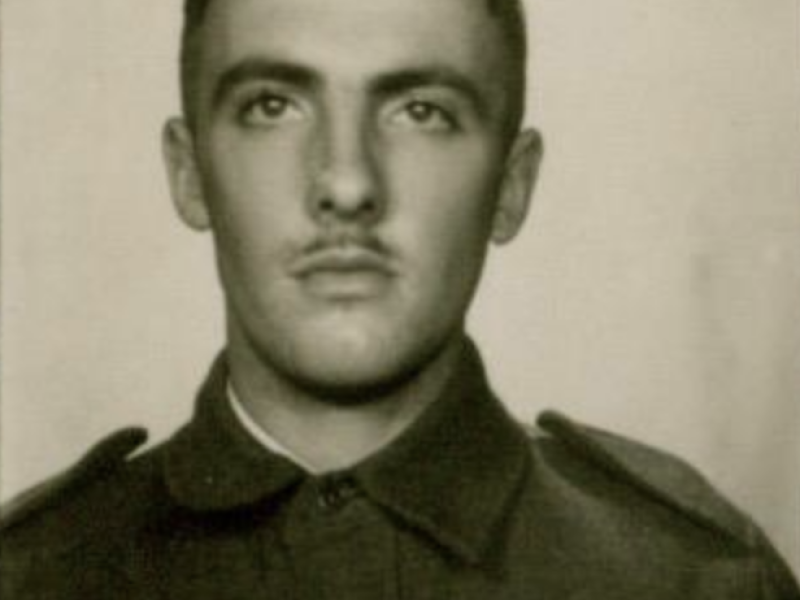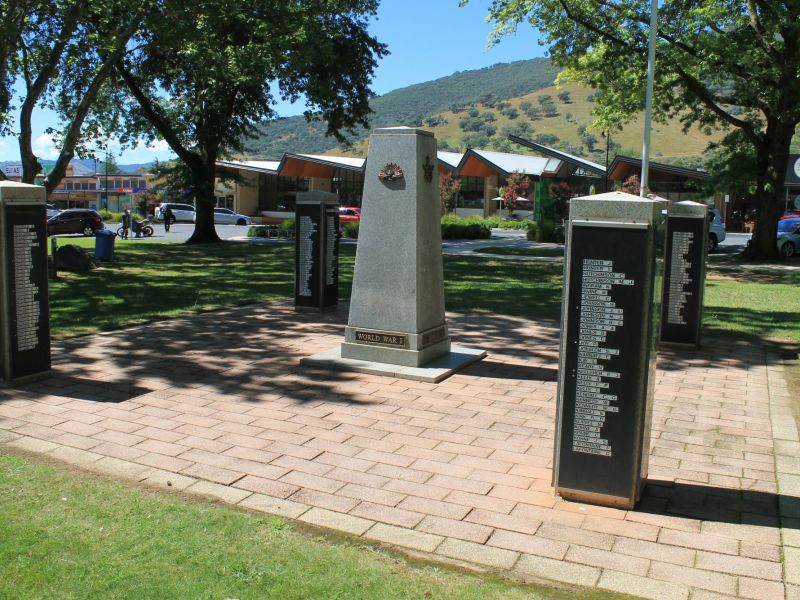Norman McGregor Hamilton
Norman was born on the 14th of February 1922, at Tallangatta, Victoria. He was the youngest of five children of Thomas Gibson and Ada Leavit (née Hindle) Hamilton.
Norman enlisted on the 5th of February, 1942, nine days after turning twenty. He listed his occupation as grazier and his father, at Hindleton via Tallangatta as his next of kin and home address. He was allotted the Army No. VX74774 and taken on strength with the AIF Details Depot at Caulfield, Victoria. He was given three days leave without pay between the 5th of 8th of February.
After rejoining the depot from leave he was posted to the 2nd Training Battalion based at Queenscliff on the Bellarine Peninsula, near Geelong. During the next six months Norman would undergo a transfer to the No. 2 Security Guard at Parkville, attend a course at Warburton and be admitted to the 115 Australian General Hospital at Heidelberg with laryngitis. He rejoined his unit on the 12th of September only to be readmitted to hospital with the mumps nine days later.
Prior to being sent to Queensland he was given a medical examination to ensure that he was physically fit for overseas service. A confidential report written during his time with the 33rd Training Battalion stated that he was a “good student and would make a good signaller or ‘I’ (Intelligence) man. Not robust enough for guerilla work.” Irrespective of the report he was passed fit to be taken on strength with 2/12th Battalion in New Guinea. It was now the 7th day of January, 1943. In a little under two weeks time, Norman would be killed in his first action.
When Norman joined the 2/12th Infantry Battalion they were busy clearing Japanese forces from the tortuous swamp country in the Sanananda area, halfway between Buna and Gona on the northern Papuan coast. The battle for Sananda had begun on the 19th of November and involved not only Australian regular and militia units but also the American 126th Infantry Regiment. By the time that Norman entered the fight Japanese forces, although still fighting ferociously, had departed from their normal habit of fighting to the death and had begun to evacuate their sick and wounded.
At first light on the morning of the 20th of January, the 2/12th sent out patrols and reported back that the enemy held their positions in strength. At 1030 hours all companies withdrew to allow artillery fire to be brought to bear on the Japanese positions. A and D Companies then advanced and, according to the battalion War Diary made a slight advance. A company of the 2/9th Battalion attacked from the south but made no progress at all, as did a company of the 2/10th as they attacked through D Company of the 2/12th. A number of the enemy were killed as they attempted to deliver rations to their encircled comrades. At the end of the day, as night closed around the troops, heavy rain made it difficult to observe the surroundings and once again both sides became thoroughly soaked as their foxholes turned to mud. The battalion suffered fourteen killed during the day. A Company was now under the command of D Company as their remaining officers had been taken away wounded. Amongst the dead was Private Norman McGregor Hamilton.
Norman has no known grave. He is remembered on the Australian War Memorial Roll of Honour, the Port Moresby (Bomana) Memorial, and the Tallangatta RSL War Memorial. For his service, he was awarded the Pacific Star, the 1939-1945 Star, the Defence Medal, the War Medal 1939-1945 and the Australian Service Medal 1939-1945.

 Stephen Learmonth
Stephen Learmonth